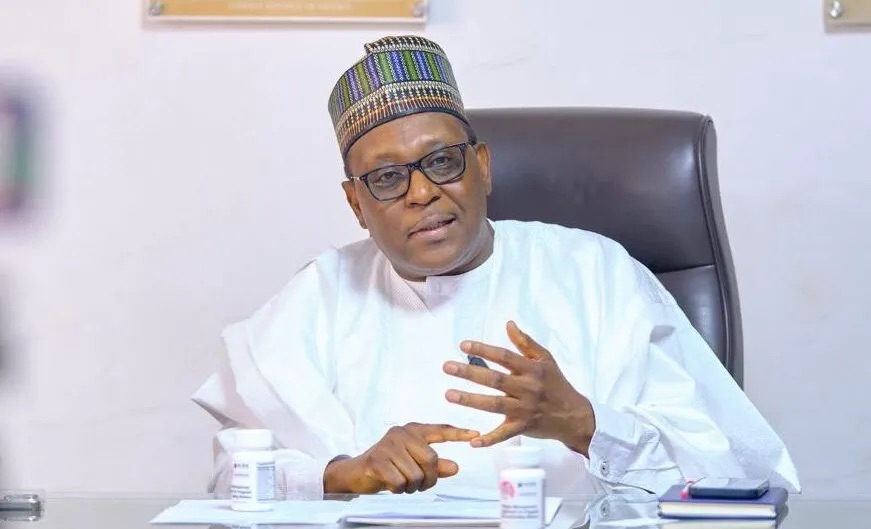Due to the deplorable condition of many primary healthcare facilities in some states of the federation, President Bola Tinubu recently approved N1trillion or $1.2billion performance-based financing initiative for state governments to strengthen their Primary Health Care centres (PHCs). The presidential intervention will enable the governors to employ more health workers and improve their medical services.
This initiative was disclosed by the Minister of Health and Social Welfare, Prof. Muhammad Ali Pate, at the 2025 First Quarter Meeting of the Northern Traditional Leaders Committee (NTLC) on PHC delivery in Abuja, recently. Apart from the yearly increases in health budget allocations, the minister said the present administration has trained and retrained over 60,000 health workers as well as improving maternal and newborn health services across the states.
The President has also offered automatic employment to 774 youths trained under the newly launched National Health Fellows Programme (NHFP) after their one year training. The trainees will monitor PHCs across the 774 local government areas. According to the minister, the Fellows selected from each council were the best among the 360,000 applicants.
We call on the state governors to work with the Federal Government to improve healthcare delivery system at the local level. Let the state governors deem it fit to substantially increase their health budgets. The other governors should emulate the Lagos State government in the funding and management of the PHCs. The Lagos model is by far adjudged the best in the country.
For Nigeria to achieve the Universal Health Coverage (UHC), there should be deliberate effort to increase the number of health care workers in the country. The dearth of health workers has been exacerbated by the increasing migration of our doctors, nurses, midwives and other health professionals to United Kingdom (UK), United States (US) and Canada and other countries. For us to deepen the universal health coverage, we must address the brain-drain in the health sector.
Nigeria cannot achieve the UHC with the present level of funding of the health sector put at between five and seven per cent annually. Unfortunately, Nigeria is yet to achieve the allocation of 15 per cent our budget annually to the health sector as recommended by African leaders in Abuja some years ago. One of the barriers against the achievement of the universal health coverage is out-of-pocket spending.
In Nigeria, the National Health Insurance Scheme (NHIS) is seemingly not working. It has not been embraced by many people. It is not even attractive. According to the World Health Organization (WHO), over 1billion people worldwide are at risk of falling into poverty due to the out-of-pocket health spending of 10 per cent or more of their household budget. It noted that scaling up primary health care interventions across low and middle-income countries could save 60 million lives and increase average life expectancy by 3.7 years by 2030.
The global health agency believes that the majority of essential interventions (90%) for universal health coverage can be delivered using a PHC approach. The WHO says that an estimated 75 per cent of the projected health gains from the Sustainable Development Goals (SDGs) could be achieved through PHC.
The WHO estimates that achieving the targets for PHC will require an additional investment of around $200 to $328 billion a year globally for a more comprehensive package of health services. This calls for enhanced health funding by all tiers of government in the country. Presently, our health funding is still very low and cannot achieve much in meeting our PHC goals and the UHC.
According to WHO and UNICEF, “PHC is a whole-of-society approach to health that aims at ensuring the highest possible level of health and well-being and their equitable distribution by focusing on people’s needs and as early as possible along the continuum from health promotion and disease prevention to treatment, rehabilitation and palliative care, and as close as feasible to people’s everyday environment.”
Since most diseases occur at the primary health care level in Nigeria, adequate financing of the PHC can take care of 70 per cent of the nation’s disease burden. Let the federal, state and local governments prioritise healthcare funding. Adequate funding of the health sector will positively affect education and other sectors. For us to be among the industrialized countries of the world, we must substantially increase our annual health and education budgets.
Let the government see healthcare as a human right and also consider offering free health care services to the citizens. Alternatively, it can subsidize essential health services, such as antenatal care, deliveries and treatment for common illnesses.

